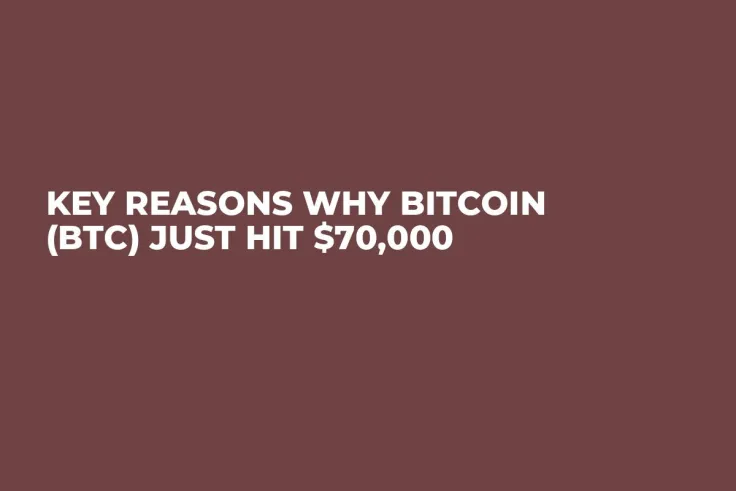
Disclaimer: The opinions expressed by our writers are their own and do not represent the views of U.Today. The financial and market information provided on U.Today is intended for informational purposes only. U.Today is not liable for any financial losses incurred while trading cryptocurrencies. Conduct your own research by contacting financial experts before making any investment decisions. We believe that all content is accurate as of the date of publication, but certain offers mentioned may no longer be available.
Bitcoin, the preeminent cryptocurrency, has surpassed a significant milestone, trading above $70,000 for the first time in its history, according to data from Bitstamp.
The leading digital currency hit an intraday high of $70,184 before retracing back to the $68,000 level.
According to CoinGlass data, total liquidations amounted to $258.56 million over the past 24 hours, with long positions accounting for $120 million and short positions $138.56 million.
Surging interest in Bitcoin ETFs
The surge in Bitcoin's price comes amidst a notable increase in investor interest, particularly in Bitcoin exchange-traded funds (ETFs).
Bitcoin ETFs experienced a significant influx of capital, with reported inflows totaling $563 million on the previous day. In stark contrast, gold ETFs saw outflows amounting to $85 million.
This indicates a growing confidence in Bitcoin as a store of value, potentially eating into the market share traditionally held by gold.
The U.S. jobs data
The buoyancy in Bitcoin's value also shows its increasing correlation with the stock market, which saw a positive response to the strong February jobs data.
The stock market's uptick, driven by expectations of a Federal Reserve rate cut, has further strengthened investor sentiment across various asset classes.
As reported by U.Today, the S&P 500 index recently reached yet another all-time peak.
The anticipated halving event
Another contributing factor to Bitcoin's rise is the anticipation of the upcoming "halving" event. This pre-scheduled process, occurring approximately every four years, cuts the reward for mining Bitcoin transactions in half, effectively reducing the rate at which new Bitcoins are created.
The next halving is projected to happen on April 20, with current progress at 97% and just 6,262 blocks remaining until the halving block of 840,000. This scarcity mechanism historically triggers a bullish sentiment as supply growth slows down.

 Vladislav Sopov
Vladislav Sopov Dan Burgin
Dan Burgin